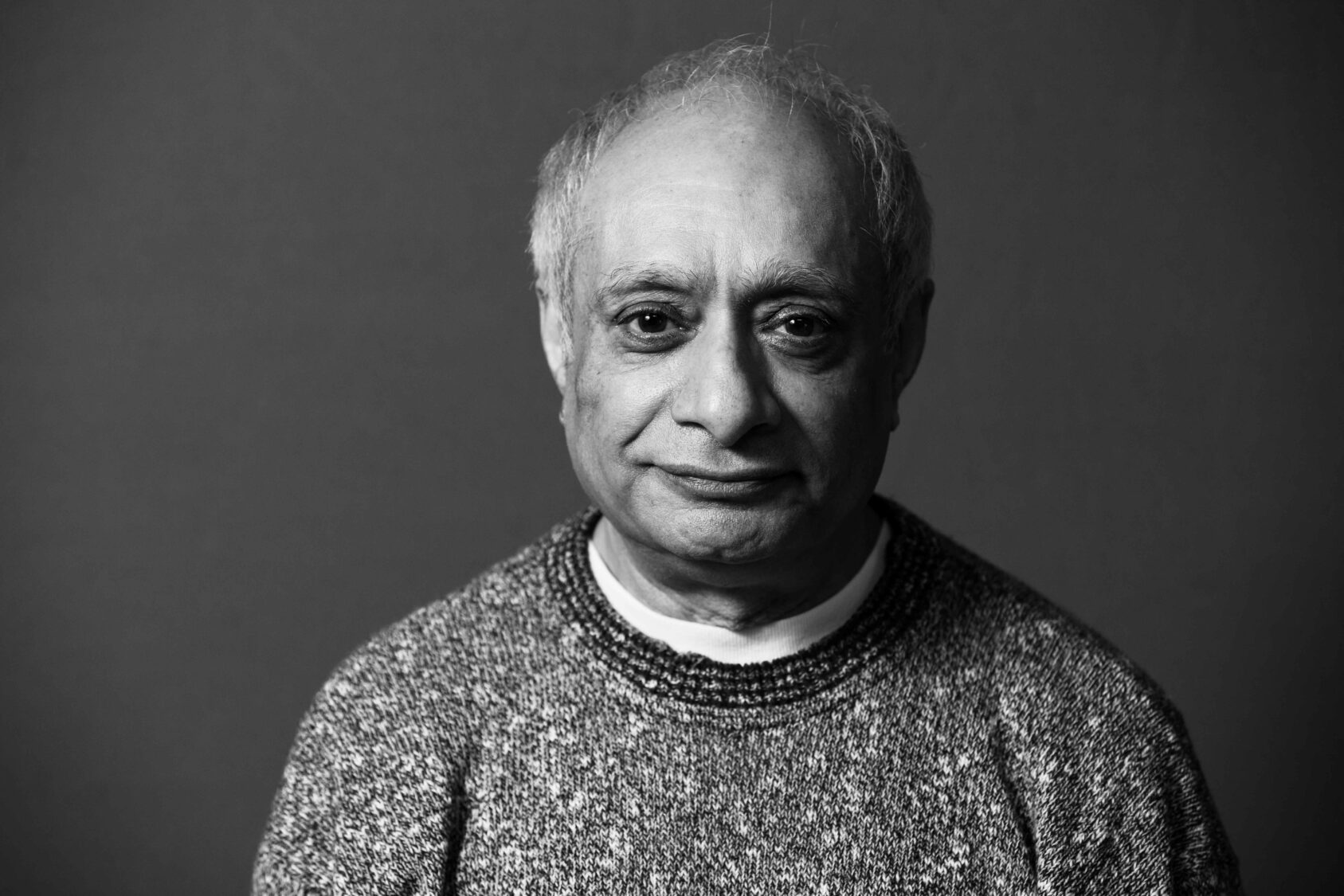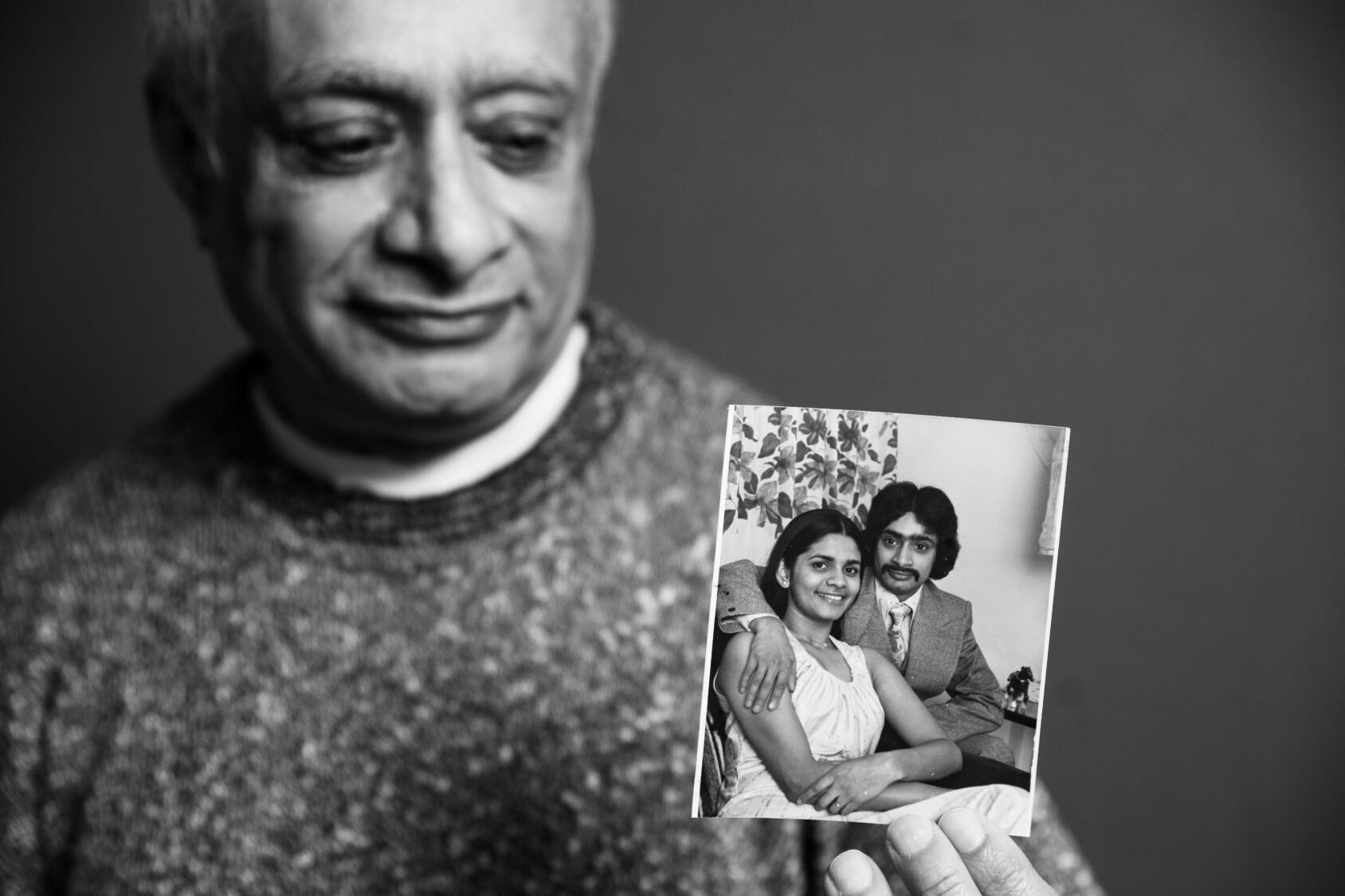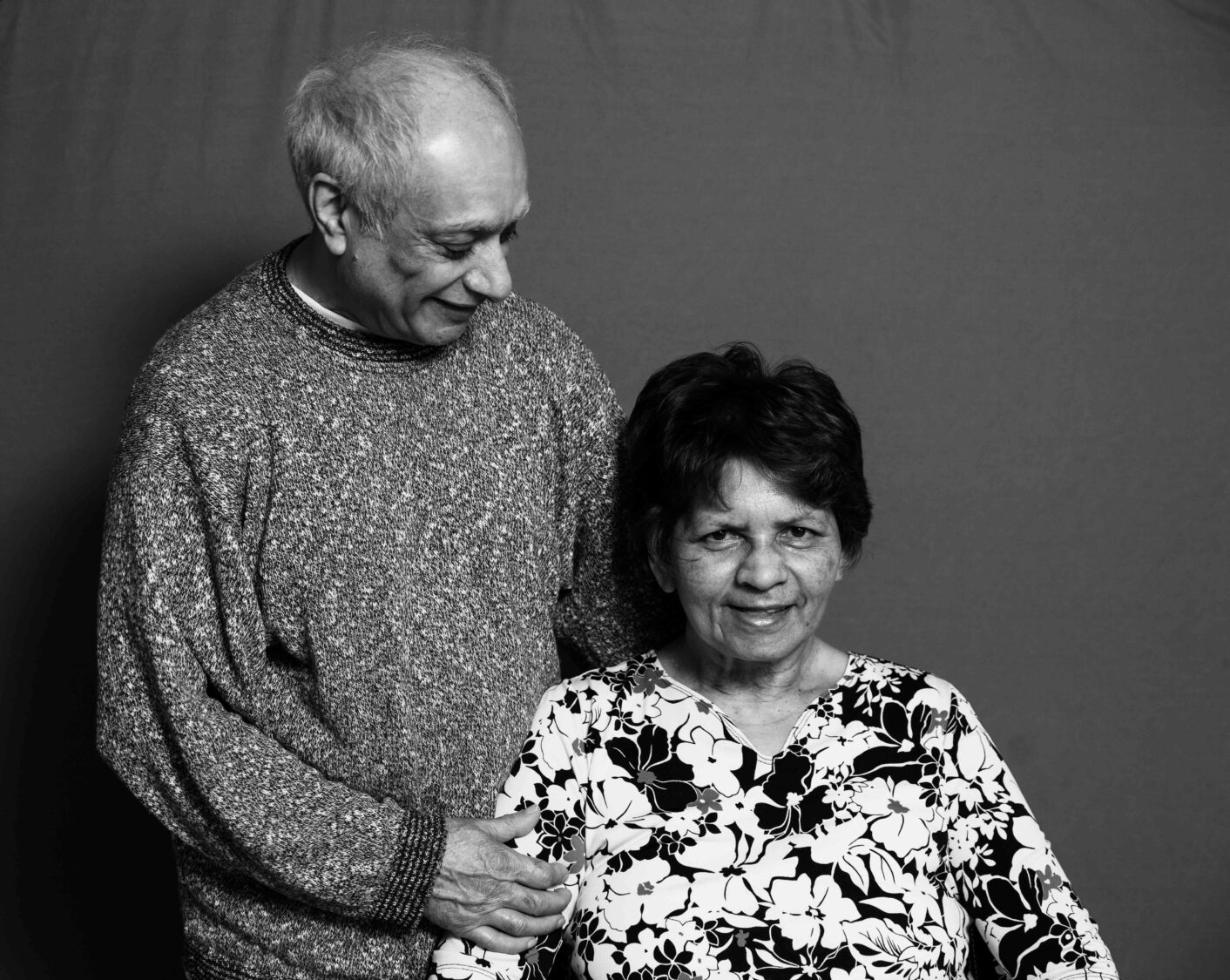
Ravinder Rehal
Essential Care Partner
I met my wife at work when I was 21. She was a machine operator at the time while working towards becoming a nurse. She would break the machine so that I would have to come fix it. Eventually she asked me to lunch.
She was diagnosed with Parkinson’s twenty-one years ago. For the first ten years or so she was self-sufficient and managed her own symptoms. She was a nurse and even worked in long term care. She was involved in our community in Aurora and was great at fundraising and planning events.
A decade or so ago things came crashing down. She needed constant care. We were in an out of hospital a lot, but she would get discharged after a few days and we’d be back at home. We tried to get in to see specialists and experts, but it was almost impossible to get anyone to listen. We had home care, but it was inconsistent and hard to manage. I had to make the decision to quit my job and we even sold our house.
I’m an engineer by training and I used to be a VP at an automotive company. I was a bit of a workaholic. I’d give my staff time off but I wouldn’t take any myself. Sometimes to relax I’d go fishing, but these days I don’t have a lot of outlets to deal with the stress of being a caregiver.

Everyone’s experience with Parkinson’s is different, which makes it even more isolating. My wife’s symptoms haven’t always aligned with the information we know about the disease. I’m not a doctor, but I have seen this disease and lived with this disease in my home. I’ve often had to push people to listen and to hear me and to consider different courses of treatment and medication and consider different diagnoses. I tell myself that all it takes is one person to listen and try something different.
During COVID-19 things became even harder. I was so burnt out. My kids didn’t see their mother for two years. So last April, my wife got a spot at the Houses of Providence. They say it take a village to look after a child, but it also takes a village to look after someone who is sick. It takes more than one person to give that care. I needed support. I needed an advocate for myself.
Providence is the best place we’ve found in the past ten years. The people there have all been incredible. There are things like administering certain medications that I couldn’t do at home because it was so hard logistically. I’d been living in a crisis situation. My wife is a people person. She’s very grateful and thankful, she really appreciates everyone.
Even though it’s been great, it often feels like long term care isn’t the right place for my wife. She’s twenty years younger than most of the other residents.

I commute to Providence from Aurora every day. It costs hundreds of dollars a month in gas and parking. I bring home-cooked food and clean laundry. I help my wife with her word puzzles and we talk and spend time together.
I’ve had people say to me that I’m strong for doing what I do, that a lot of other people would turn away. But this is a commitment that you make. It’s my duty. If the shoe was on the other foot my wife would be there for me.
Our plan was that once the kids were on their feet we would travel and do the things that we didn’t get a chance to do when we were younger because we were busy working. These were supposed to be the golden years.
If I could go back and change things, I wouldn’t leave anything for tomorrow. I wouldn’t wait for the golden years. I’d find a way to live life while we were young. That’s what I tell my kids now: don’t wait, do the things you want to do now. My wife is young. We’re both young. We have a lot of life left to live. But I have a hard time imagining the next twenty years. I’m happy that she can laugh and smile now, but I hope that there is something more that is possible.
Ravinder Rehal is an Essential Care Partner at Unity Health Toronto. Essential Care Partners are family members and/or loved ones whose presence contributes to the well-being of patients while they are in hospitals or long term care.
As told to Olivia Lavery. Photos by Katie Cooper. This interview has been edited and condensed.

